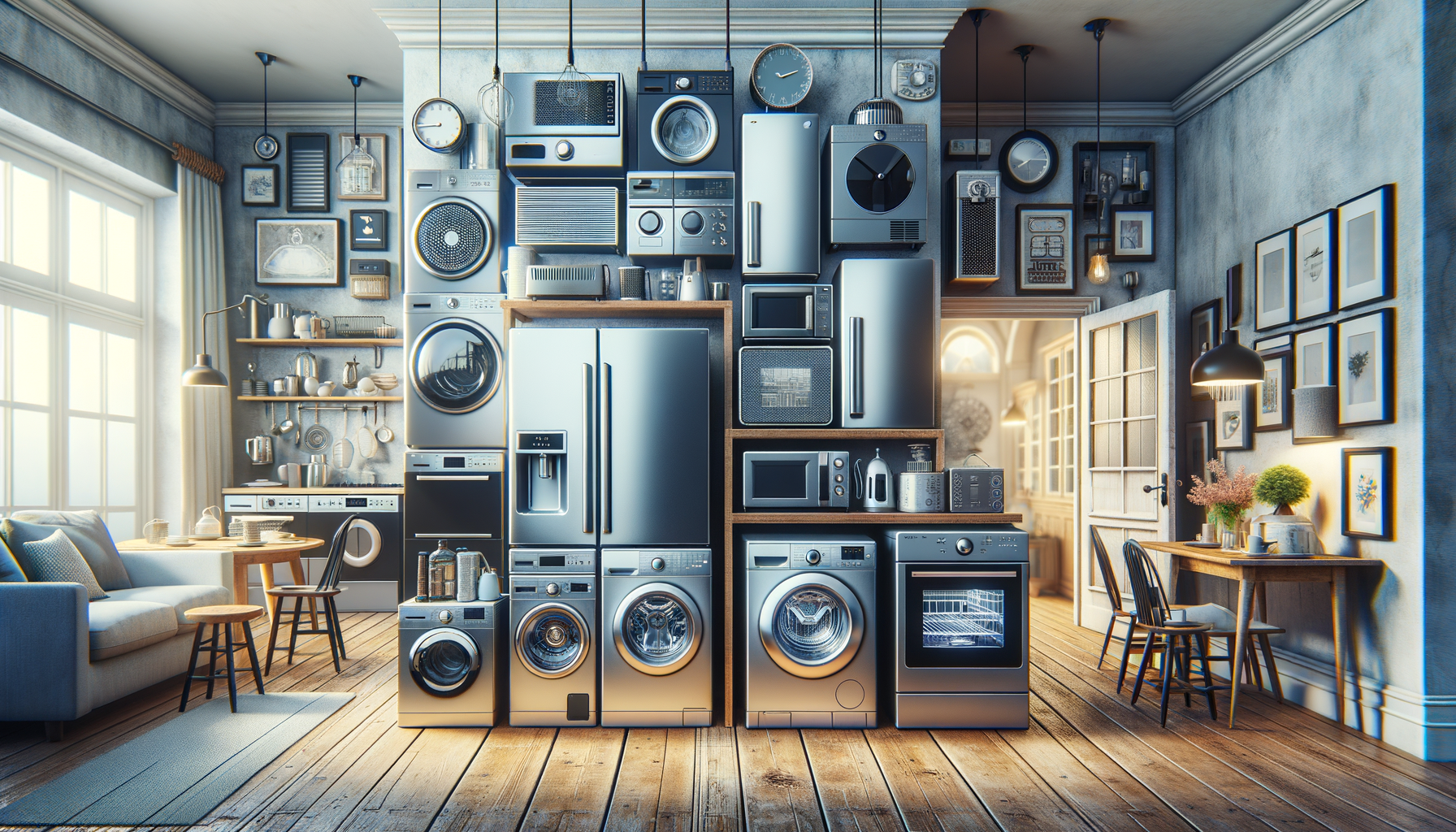Home Appliances: Enhancing Everyday Living
Home appliances play a crucial role in modern living, offering convenience, efficiency, and comfort in our daily routines.

The Evolution of Home Appliances
Home appliances have undergone significant transformations over the past century, evolving from basic mechanical devices to sophisticated electronic machines. Initially, appliances like washing machines and refrigerators were considered luxury items, accessible only to a few. However, technological advancements and mass production have made these appliances staples in most households today. The introduction of smart technology has further revolutionized the home appliance industry, integrating features like remote control and energy efficiency.
Modern home appliances are designed to cater to the fast-paced lifestyle of today’s consumers. For instance, smart refrigerators can now monitor food inventory and suggest recipes based on available ingredients. Similarly, washing machines with AI capabilities can adjust water usage and cycle duration based on the load size and fabric type. These innovations not only enhance convenience but also contribute to sustainable living by reducing energy consumption.
Key Considerations When Choosing Home Appliances
Selecting the right home appliances involves several considerations to ensure they meet your needs and preferences. Here are some crucial factors to keep in mind:
- Energy Efficiency: Opt for appliances with high energy ratings to save on electricity bills and reduce your carbon footprint.
- Size and Capacity: Consider the available space in your home and the appliance’s capacity to ensure it fits your requirements.
- Features and Technology: Evaluate the features that are most important to you, such as smart technology, noise levels, or specific functions.
- Budget: Set a realistic budget that accommodates both the purchase price and long-term operating costs.
By carefully assessing these factors, you can make informed decisions that align with your lifestyle and financial considerations.
Impact of Smart Technology on Home Appliances
Smart technology is reshaping the landscape of home appliances by introducing connectivity and automation. Smart appliances can be controlled remotely via smartphones or voice assistants, offering unparalleled convenience. For example, smart ovens can be preheated while you’re on your way home, ensuring that dinner is ready when you arrive.
Moreover, smart technology enables appliances to communicate with each other, creating a cohesive ecosystem. A smart washing machine can notify the dryer when a load is complete, optimizing the laundry process. These interconnected devices also provide valuable insights into usage patterns, helping homeowners optimize their energy consumption and maintenance schedules.
While the initial investment in smart appliances may be higher, the long-term benefits in terms of energy savings and convenience often justify the cost.
Environmental Considerations in Home Appliance Usage
With growing awareness of environmental issues, consumers are increasingly prioritizing eco-friendly home appliances. Manufacturers are responding by designing products that minimize environmental impact. Energy-efficient appliances use less electricity, which not only lowers utility bills but also reduces greenhouse gas emissions.
Additionally, some appliances are designed to use alternative energy sources, such as solar-powered water heaters. These innovations contribute to a more sustainable lifestyle by decreasing reliance on fossil fuels. Moreover, many manufacturers are adopting sustainable practices in production, such as using recycled materials and reducing waste.
By choosing environmentally friendly appliances, consumers can play a significant role in promoting sustainability and protecting the planet for future generations.
Future Trends in Home Appliances
The future of home appliances is poised for even more exciting developments. One trend is the increasing integration of artificial intelligence, which will enable appliances to learn and adapt to user preferences over time. This could lead to refrigerators that automatically reorder groceries or ovens that suggest recipes based on dietary restrictions.
Another trend is the focus on health and wellness. Appliances like air purifiers and water filters are becoming more advanced, offering enhanced features to ensure a healthier living environment. Additionally, the rise of the Internet of Things (IoT) will continue to drive innovation, with more appliances becoming part of a connected home ecosystem.
As these trends unfold, home appliances will continue to play a pivotal role in shaping modern living, offering solutions that enhance comfort, efficiency, and sustainability.